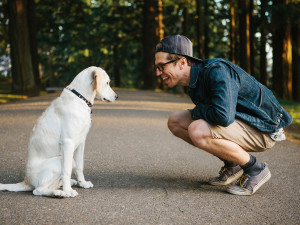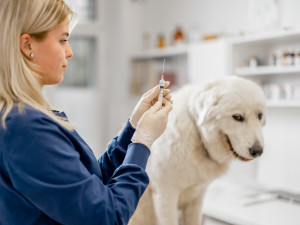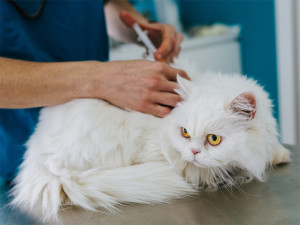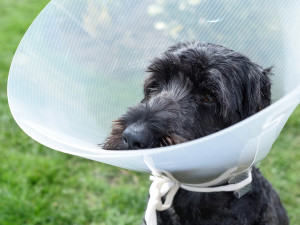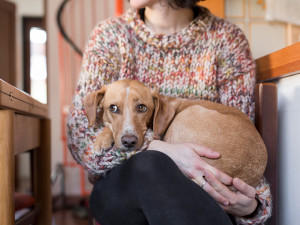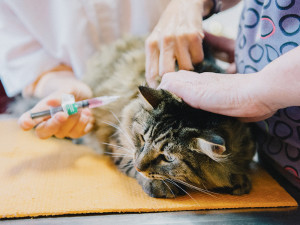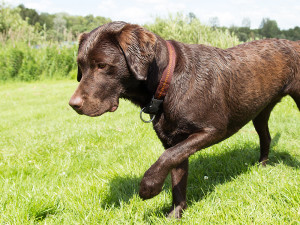Vaccine Hesitancy Reaches the Dog World, Survey Finds
Let’s debunk some things right now for new pet parents with questions.
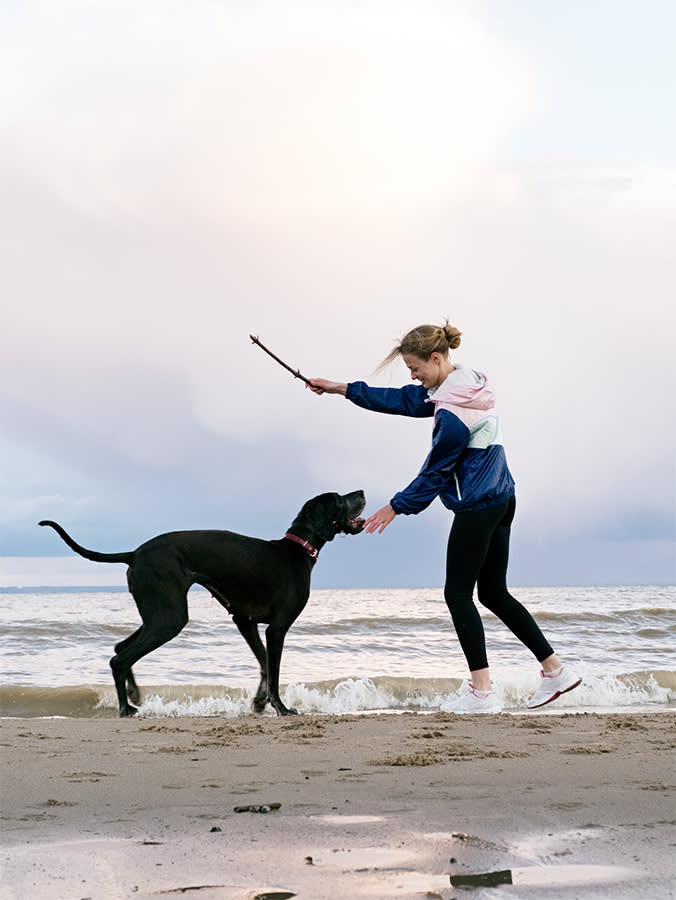
share article
Sometimes, the almighty internet algorithm decides you should be into something new and fills your feed with content that you don’t want. This is fine if you’re being shown deftly edited clips trying to trick you into thinking you can bake Great British Bakeoff-worthy. It’s not so great when you’re being fed misinformation. Misleading articles and headlines are made to get in your head and create doubt. Maybe lizard people do exist. Maybe the earth really is flat. Maybe my dog can get autism from a vaccine.
A recent report showed that over half of dog parents in a national survey had concerns about either the safety, efficacy, or necessity of vaccination for their pets. Thirty-seven percent of the respondents were worried that vaccines could cause “cognitive issues like canine/feline autism.” This concern likely stems from a retractedopens in a new tab and immediatelyopens in a new tab debunkedopens in a new tab 1998 study linking the measles, mumps, and rubella vaccine to autism spectrum disorder (autism) in children. To be crystal clear, there is no evidenceopens in a new tab that vaccinesopens in a new tab cause autismopens in a new tab in childrenopens in a new tab.
But doubt lingers, and some of this uncertainty has spread to the dog world. A major concern in the recent survey was that dog parents displaying vaccine hesitancy were more likely to have pets not up to date on their rabies vaccinations.
Why is rabies vaccination important?
Rabies is a terrible disease that is 100 percent fatal in animals and nearly 100 percent fatal in humans. For a long time, people in the United States haven’t had to think much about rabies beyond getting their pets vaccinated during checkups. Because of a combination of responsible pet parenting and laws requiring rabies vaccination, rabies has been almost completely eliminated from dogs in the U.S.
Working to protect dogs from rabies has paid off well. There are only one to three casesopens in a new tab of humans infected with rabies in the U.S. per year, and most of those are from exposure to wild animals, such as bats and raccoons.
Possible Concerns About Rabies Vaccination in Dogs
You may have encountered articles raising concerns about rabies vaccines in dogs. The vast majority of these articles use fear and false correlations to create uncertainty about the safety of rabies vaccination. Because of this, veterinarians are often asked questions like:
Does rabies vaccination cause autism in dogs?
Rest assured, rabies vaccination does not cause autism in dogs. Autism spectrum disorder is not diagnosed in dogs, nor is a condition recognized by veterinary behaviorists or neurologists.
Does rabies vaccination have any negative health effects?
Vaccine reactions, including those to the rabies vaccine, are uncommon, but anything your dog is exposed to, including food, medications, vaccines, pollen, and insects, can cause an allergic reaction. Adverse events occur in only about 25 out of every 10,000 dosesopens in a new tab of rabies vaccine administered. Although rare, there have been instances opens in a new tab of specific types of injection-site sarcomas opens in a new tabafter rabies vaccination.
A vaccine reaction can show up in many ways, including:
Soreness
Puffy face/eyes
Hives
Itchiness
Vomiting
Fever
Lethargy
Collapse
Most dogs respond well to basic medications, such as steroids and antihistamines, to treat allergic reactions, but some can need more intensive care if they have a severe reaction.
Should smaller dogs receive a smaller amount of vaccine?
It’s tempting to think that smaller dogs should receive a smaller amount of vaccine than big ones. After all, it does seem a little odd that a Chihuahua gets the same dose as a St. Bernard. Vaccines are dosed uniformly because they’re calibrated to stimulate the immune system, which requires the same amount of antigen (deactivated virus bits) no matter the size of the dog.
What are the consequences of not vaccinating for rabies?
Rabies vaccination is important enough for public health that almost every jurisdiction in the U.S. requires it as a part of having a dog. Even if it’s not required, vaccination is still in your dog’s best interest. Dogs are innately curious and will not hesitate to put a dead animal in their mouth or wrestle with an aggressive raccoon that saunters onto their property.
Vaccinating is part of being a good dog parent. While your dog will not develop autism, you should still talk to your veterinarian to make sure that your pet is not at risk for any other vaccine reactions or complications.
References
Lancet retracts 12-year-old article linking autism to MMR vaccinesopens in a new tab
Time trends in autism and in MMR immunization coverage in Californiaopens in a new tab
What is Autism Speaks position on vaccines?opens in a new tab
Adverse events diagnosed within three days of vaccine administration in dogsopens in a new tab
Injection-Site Sarcoma in a Dog: Clinical and Pathological Findingsopens in a new tab

Dr. Bartley Harrison, DVM
Dr. Bartley Harrison, DVM is a small animal veterinarian based in North Carolina who has practiced emergency medicine since graduating from the Texas A&M College of Veterinary Medicine. His primary interest areas include pain management, cardiology, and the treatment of shock.
He is a member of the Veterinary Emergency and Critical Care Society, American Veterinary Medical Association, and American Medical Writers Association. In addition to his clinical work, he writes pet health articles to help provide accurate information for both new and experienced pet parents. When he’s not working, he enjoys cooking, traveling, reading, and going on adventures with his dog.
Related articles
![shy dog frightened in the arms of the owner. this brown mixed-breed hound puppy has a sweet gaze. the female owner has a wool sweater]() opens in a new tab
opens in a new tabWhy is My Dog Shaking? Causes and Treatment
A vet explains why the weather isn’t always to blame.
![cat getting a vaccine at the vet]() opens in a new tab
opens in a new tabYep, Kittens Need Vaccines (Even Indoor Ones)
A vet gets the facts straight.
![Cavalier King Charles spaniel puppy running in a garden]() opens in a new tab
opens in a new tabParvovirus: How to Identify and Treat Parvo Symptoms in Puppies
The potentially deadly virus can be prevented with one simple step.
![Beautiful dalmatian dog breed coughing at home.]() opens in a new tab
opens in a new tabCanine Respiratory Illnesses Are Spreading Across the U.S.
What we know and what dog parents should look out for.
![Brown Labrador lifting front leg]() opens in a new tab
opens in a new tabHow to Get a Head Start on Your Pet’s Health
Spot lumps, limps, and lethargy early on.
